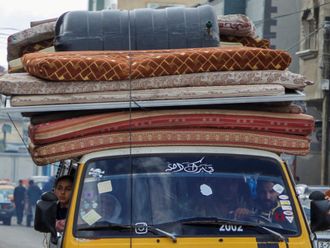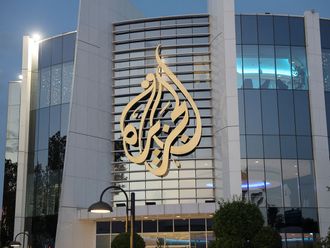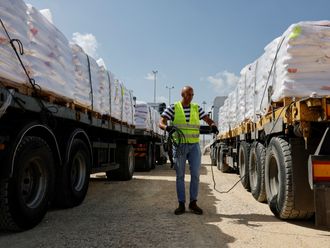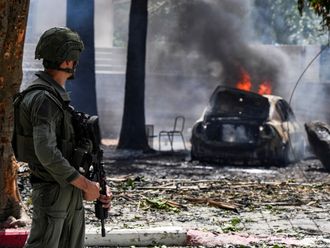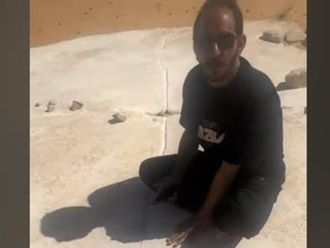Occupied Jerusalem: Despite its confident saber-rattling, Israel's concern is growing that the country is vulnerable to a devastating counter-strike if it attacks Iran's nuclear programme.
An announcement this week that a mobile rocket-defence system will soon be built just outside Tel Aviv, where Israel's sprawling military headquarters sits smack in the middle of office towers, museums, night spots and hotels, caused some jitters. Israeli officials cite intelligence reports that Tel Aviv would be a main target of any attack.
Increasingly, the debate in Israel is turning to whether a strike can do enough damage to the Iranian programme to be worth the risks. Experts believe that any attack would at best set back, but not cripple, the Iranians.
Scepticism about Israel's ability to defend itself runs deep. Israelis still remember Iraqi Scuds landing in the centre of the country 20 years ago. In 2006, the Lebanese Hezbollah fighters seemed able to rain rockets at will during a month-long conflict with the state. A scathing government report issued months ago suggested the home front is still woefully unprepared.
In a questionably timed move, the Cabinet minister in charge of civil defence in recent days resigned to become the ambassador to faraway China.
Vice-Prime Minister Dan Meridor, who also serves as minister of intelligence and atomic energy, indicated that Israel was facing a new type of peril.
Change of paradigm
"Whereas in the past, there was a battlefield where tanks fought tanks, planes fought planes, there was a certain push not to see the home front affected. Now the war is mainly in the home front," said the normally tight-lipped Meridor.
"The whole of Israel [is vulnerable to] tens of thousands of missiles and rockets from neighbouring countries. So of course we need to understand the change of paradigm," he continued. "If there is a war, and I hope there isn't a war, they are not just going to hit Israeli soldiers. The main aim is at civilian populations."
Both Israel and the West believe Iran is trying to develop a nuclear bomb — a charge Tehran denies. Israel believes a nuclear-armed Iran would be a threat to its very existence, citing Iranian leaders' calls for its destruction.
Israel has welcomed international sanctions imposed on the Islamic regime, but it has pointedly refused to rule out military action. In recent weeks, top leaders have sent signals that patience is running thin.
An Israeli military strike would very likely draw an Iranian retaliation, experts believe, which would involve either Iran firing its long-range Shahab missiles or acting via local proxies of Hezbollah in Lebanon, Hamas in Gaza or even Al Assad loyalists in Syria.
Experts believe the experience of the 2006 war against Hezbollah, in which the guerrillas rained 4,000 rockets onto Israel, is just a small taste of what could lie ahead. The chief of military intelligence recently said that Israel's enemies now have some 200,000 rockets and missiles aimed at Israel.
But this time, Israel's main population centres are believed to be possible targets. In the past, rockets fired from Gaza or Lebanon have been directed at smaller, marginal communities, the largest being regional centres like Haifa in the north or Beersheba in the south.
Leaders believe that Israel's main cities would be targeted by more sophisticated, longer-range missiles.
Occupied Jerusalem is considered relatively safe because of its Islamic holy sites. But the Mediterranean coast, home to most of the country's population, with Tel Aviv as the gleaming target at its centre, seems like a very attractive target.
Fun-loving hub
The business and cultural capital of the country, with a metropolitan population of more than two million, Tel Aviv is critical to Israel's image of itself as a modern place with a Western lifestyle. Israel happily markets the city as a high-tech, fun-loving hub.
Aside from a spate of Saddam Hussain's rudimentary Scud missiles in 1991, the city has never truly been tested before. Although the Scuds caused little damage memories of that war are vivid the strikes caused widespread panic and tens of thousands of people fled to safer areas of the country or left altogether.
A prolonged siege on the city today could likely fuel another exodus.


